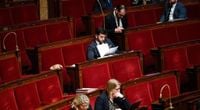France's political scene is increasingly tumultuous as the Rassemblement National (RN) ramps up its efforts to challenge Prime Minister François Bayrou's government on energy issues and broader legislative concerns. On March 25, 2025, RN deputy Jean-Philippe Tanguy confirmed that he has taken up and submitted the draft law regarding energy, originally introduced by Senator Daniel Gremillet. This action comes as the Bayrou government prepares to publish a decree regarding the multiannual energy program (PPE 3) in April.
The RN is leveraging this legislative move to demand a full parliamentary debate on France’s energy planning, asserting that the executive's reliance on decrees could infringe upon parliamentary prerogatives and effectively sideline public discourse on crucial energy matters. Tanguy made it clear that should the government proceed by decree, the RN is prepared to pursue legal challenges and has not ruled out filing a motion of censure against Bayrou's government.
"If you do not consult Parliament, we too will honor Luc Rémont by sending you back," Tanguy warned during a parliamentary questioning session, alluding to the recent non-renewal of EDF's CEO. His comments echo broader frustrations within the RN concerning perceived governmental overreach and a lack of democratic engagement.
Marine Le Pen, who is keenly monitoring the situation, described the government's approach as a "true shame." She emphasized that the proposed PPE 3 would allocate a staggering €100 billion for intermittent energy sources, which includes €37 billion exclusively for offshore wind turbine connections. Le Pen's attention to these figures illustrates the RN's strategy of framing the government's energy policy as financially irresponsible and inadequately transparent.
Tanguy reiterated the party's commitment to pushing for adherence to the energy and climate law from 2019, which mandates the establishment of energy targets and priorities every five years. The trajectory outlined in the draft PPE 3 plans to slash the share of fossil fuels in France's energy mix from 58% in 2023 to 42% by 2030, then further to 30% by 2035, coinciding with a rise in renewable electricity consumption from 27% to 39% over the same timeframe.
By introducing Gremillet’s bill, the RN hopes to use its legislative foothold to initiate discussions and debates in a dedicated week at the National Assembly, aiming to bring the various factions together on energy planning amidst intense partisan division.
However, Tanguy also indicated that if the government continues to bypass parliamentary procedures, there will be a formalized response from the RN. "The legal recourse is certain," he stated, highlighting the party's readiness to act should their demands go unaddressed. This sentiment resonates with broader critiques circulating within parliamentary circles regarding the government's legislative strategy.
On March 23, 2025, Tanguy articulated his concerns on the LCI program L'Évènement, warning that as issues pile up—immigration, energy planning—there's a real threat of formal censure against the Bayrou administration. "The group will decide," he remarked, subtly positioning himself while ensuring collective responsibility within the RN. This strategic framing serves to reinforce the expectation that should governmental actions continue on a contentious path, they may lead to increased political instability.
Marine Le Pen expressed frustration on the same day, stating, "I find the wait long," pointing to unresolved issues such as proportional representation and immigration legislation. The RN is tapping into a sense of urgency and popular discontent, using delays and inaction as ammunition against the government.
With the RN aiming to consolidate its political capital and restore its visibility in the national political discourse, the party's move against Bayrou comes during a time when they have witnessed a dip in momentum following support for the government from socialist party members. The RN, keen to shift the focus back to their critiques, is striving to position itself front and center in the political debate as the upcoming motions unfold.
Tanguy’s remarks hint at the potential volatility within the National Assembly. The RN has not ruled out collaborating with other opposition factions should conditions prove ripe for a censure motion, signaling a collective attempt to challenge what they perceive as a failing government.
"It is not merely about creating noise; it is about real accountability, real governance," stated Tanguy, underlining the RN's insistence on legislative integrity and proper procedures. As March draws to a close, all eyes remain fixed on the ensuing parliamentary debates and the government's responses to escalating opposition pressure.






